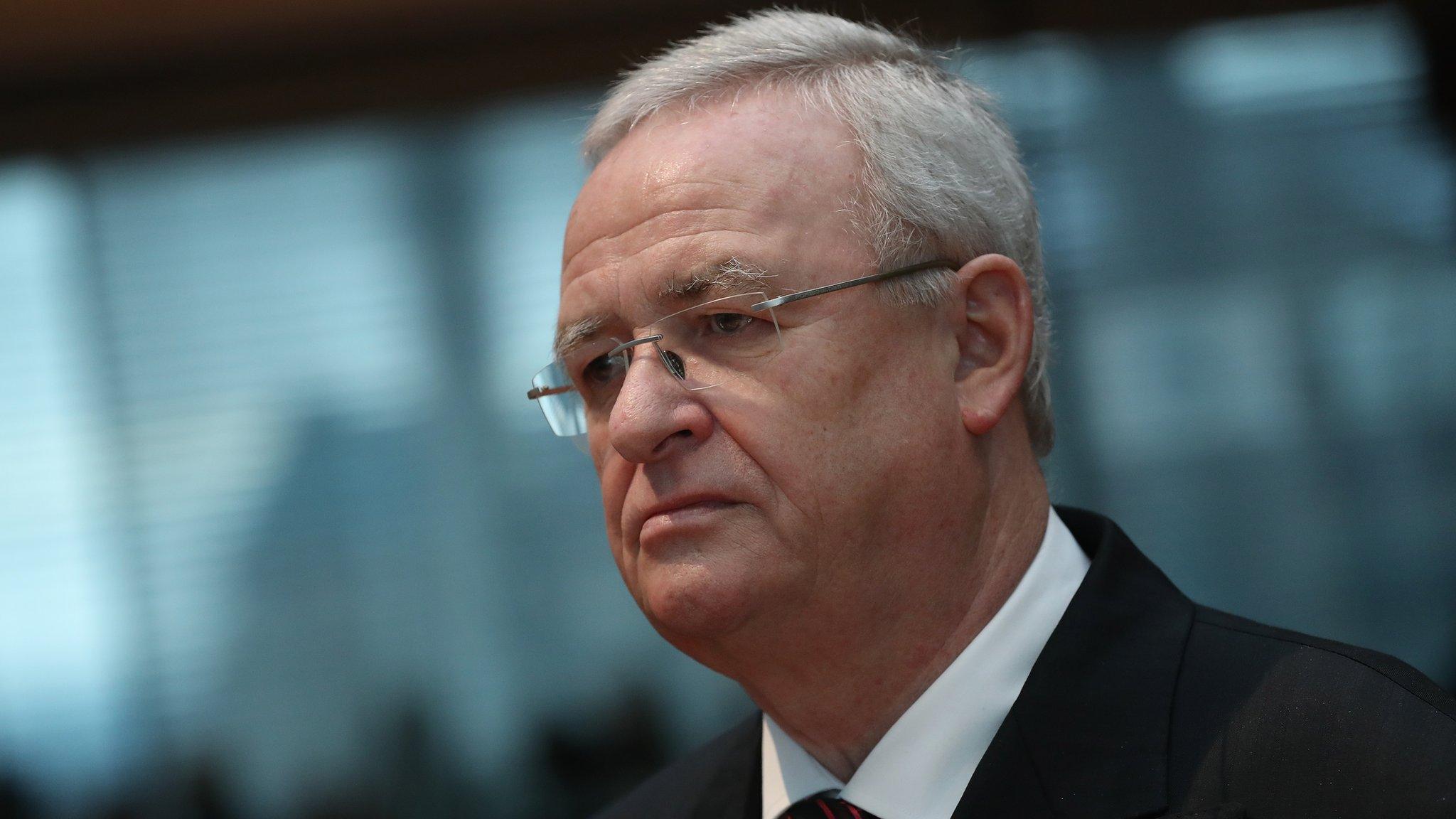How the Audi boss was finally emitted
- Published
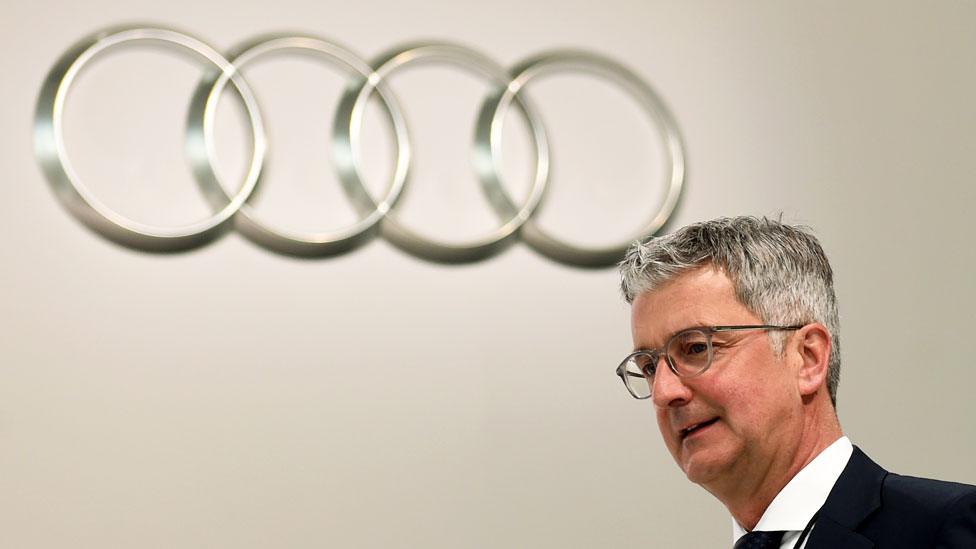
Rupert Stadler has stood down from his role leading Audi but questions are being asked as to why it took so long
Rupert Stadler is the long-serving Chief Executive of VW's subsidiary Audi and a senior member of the group's management board.
He was arrested on Monday as part of an investigation into suspected fraud and false advertising, involving the sale of vehicles equipped with emissions cheating software.
He has spent the past few days incarcerated behind the high concrete walls of Augsburg-Gablingen prison - a far cry from Audi's majestic glass-fronted headquarters in Ingolstadt.
Executives under fire
The Audi CEO was already known to be under scrutiny. A week before his arrest, his house was searched, by Munich prosecutors.
He was named as one of 20 people being investigated as part of their enquiry. He was detained, according to prosecutors, because of concerns about the possible obstruction of justice.
Mr Stadler has now stepped down from his posts, temporarily at least.
But what many experts are puzzled by is why - whether or not he has actually done anything wrong - he was still in those posts at all.
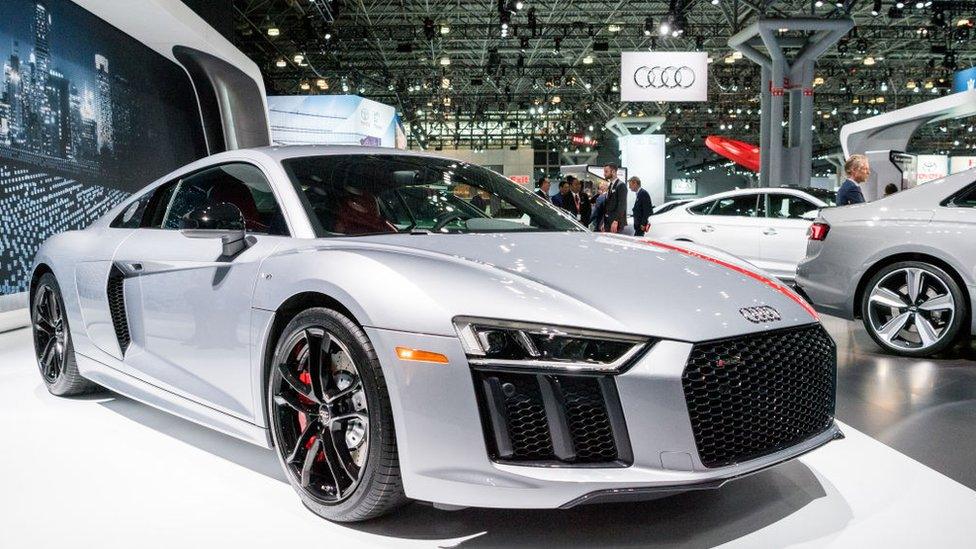
Audi is the Volkswagen Group's most profitable brand
VW royalty
Rupert Stadler is VW Group royalty.
He has been in charge of Audi since 2007, and has sat on the main group board since 2010. Last year his contract was extended for five years - up to the end of 2022.
That surprised many observers. Audi was heavily implicated in the diesel emissions scandal, which first came to light in September 2015.
According to a statement agreed by VW with US prosecutors as part of a settlement last year, it was Audi engineers who first came up with the so-called "defeat device".
This was software which put cars into a special test mode, enabling them to pass stringent US emissions tests, despite producing high levels of pollution when used on the road.
It was later found to have been fitted to millions of cars around the world.
Audi also designed and built 3 litre engines used by brands throughout the VW Group, which were later shown to be using the illegal software.
When the wrongdoing came to light, the VW Group chief executive, Martin Winterkorn, lost his job. Since then many more executives and senior engineers have left.
The company has thoroughly overhauled its management - and even Mr Winterkorn's successor, Matthias Mueller, was recently moved on.
Yet until this week, Rupert Stadler remained firmly in his post.
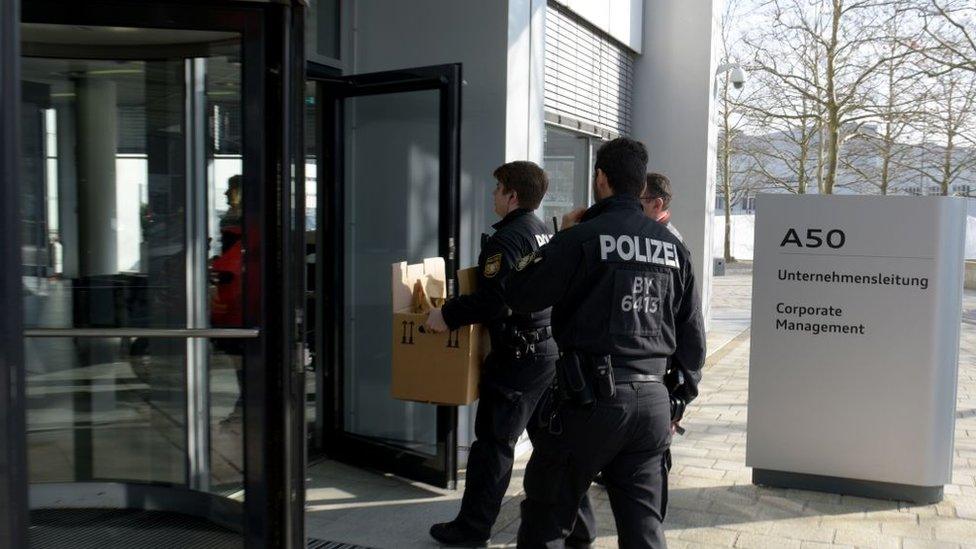
Policemen searched the Ingolstadt headquarters of the German car manufacturer on February 6, 2018
Last year, the company offered to install new engine software on 850,000 cars to reduce their emissions. In May it recalled a further 60,000 after discovering "irregularities" in their emissions controls.
Even the news that Mr Stadler's house had been raided by prosecutors investigating the emissions scandal did not appear to set alarm bells ringing.
"It certainly raises questions about governance at Volkswagen and Audi", says Arndt Ellinghorst, automotive analyst at Evercore ISI.
"Why did the police act and not the board of VW? I think he should have stepped down earlier.
"Whether you're guilty or not, if you're in charge you have to take responsibility".
A question of governance
The reason he remained in his post may be down to the way Volkswagen is owned and run.
A majority of the voting rights are held by Porsche SE.
This is essentially an investment vehicle controlled by the Porsche and Piech families. They are descendants of Ferdinand Porsche, the man who invented the VW Beetle and founded the sportscar maker that bears his name.
There are two other highly influential shareholders - the State of Lower Saxony and Qatar Holding, a division of the Qatar Investment Authority.
According to Professor Ferdinand Dudenhoffer of the Center Automotive Research at the University of Duisburg-Essen, Mr Stadler had powerful backing.
"It's very surprising", he says.
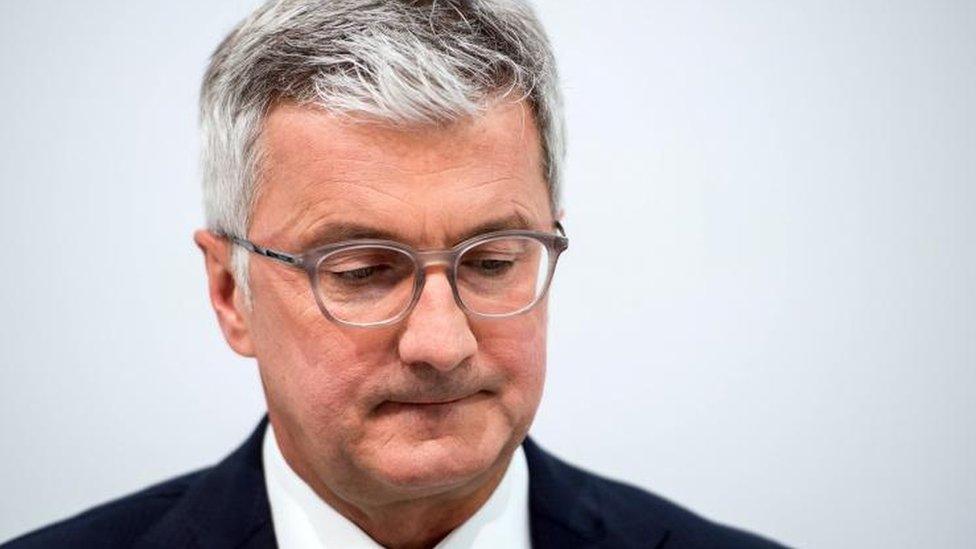
"Wolfgang Porsche, who represents the families, has supported Stadler since the beginning of the scandal. The Premier of Lower Saxony has also supported him".
"When his house was searched, they didn't react. Then after his arrest, they took a whole day to react".
Arndt Ellinghorst agrees.
"It is extraordinary. It is a big setback in terms of the governance within Volkswagen", he says.
Breath of fresh air
Since the scandal erupted, VW has had to set aside some $30bn to cover fines and settlements. Earlier this month it agreed to pay $1.2bn to settle criminal charges in Germany.
In April, the company appointed a new CEO, Herbert Diess. A former BMW executive with a reputation as a ruthless decision maker, he joined VW a mere three years ago - and was welcomed by many outside experts as a breath of fresh air.
His appointment coincided with a major restructuring of VW's management, designed to streamline decision making, and help speed up reform within the group.
But the arrest of one of the Group's top executives while still in office suggests that the road to reform remains dauntingly long.
- Published8 May 2018
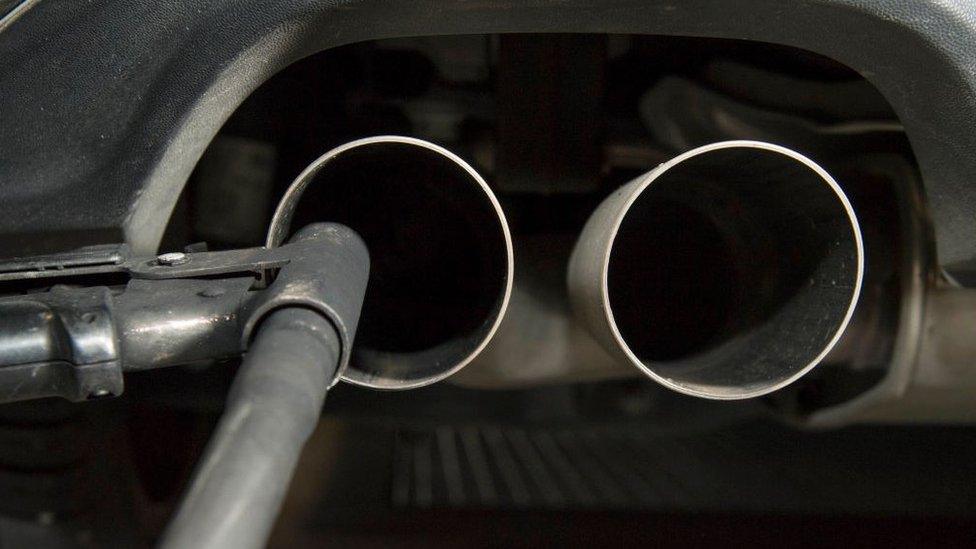
- Published5 May 2018
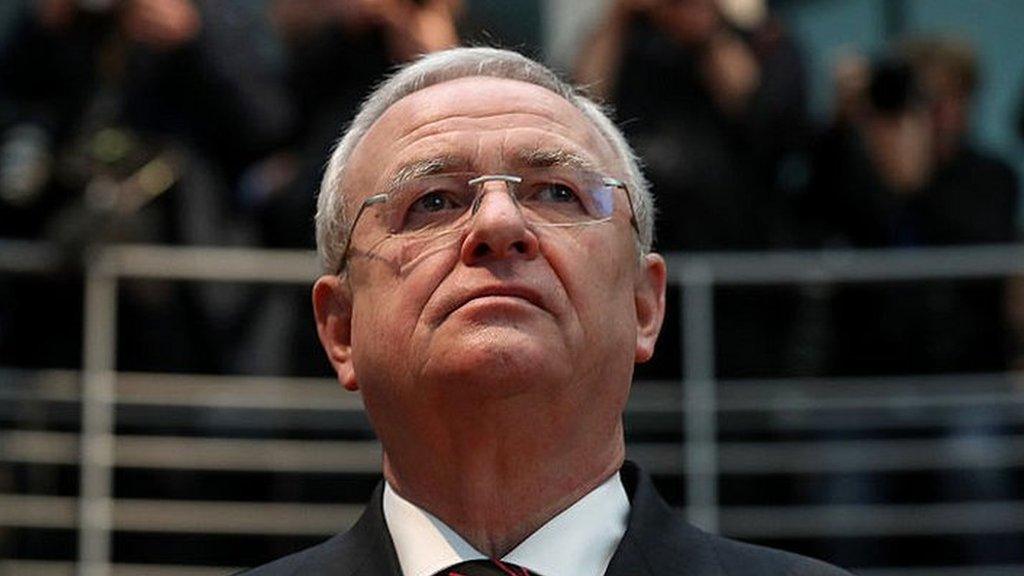
- Published3 May 2018
